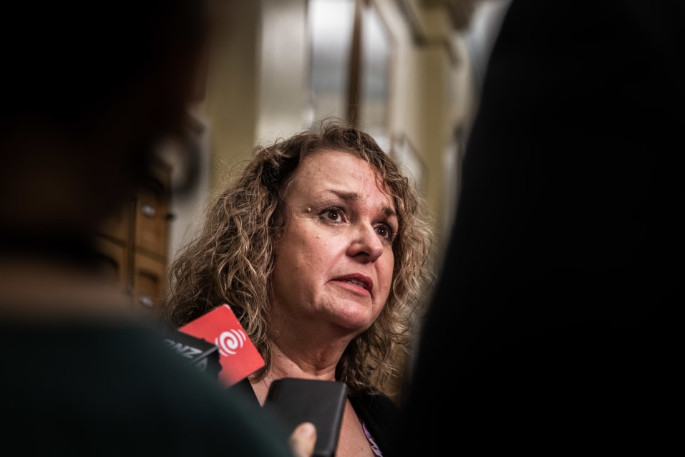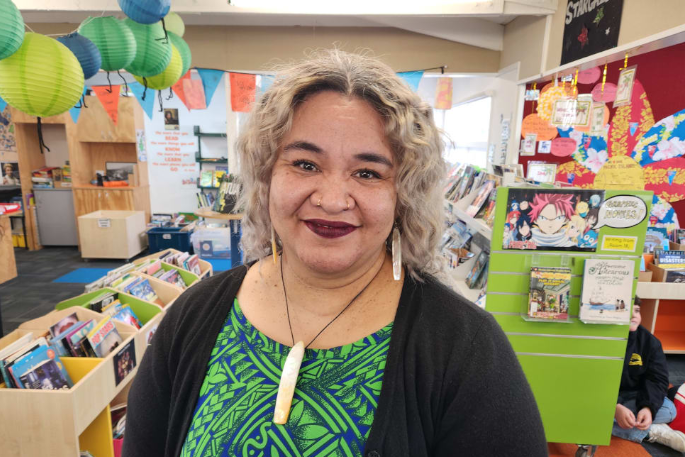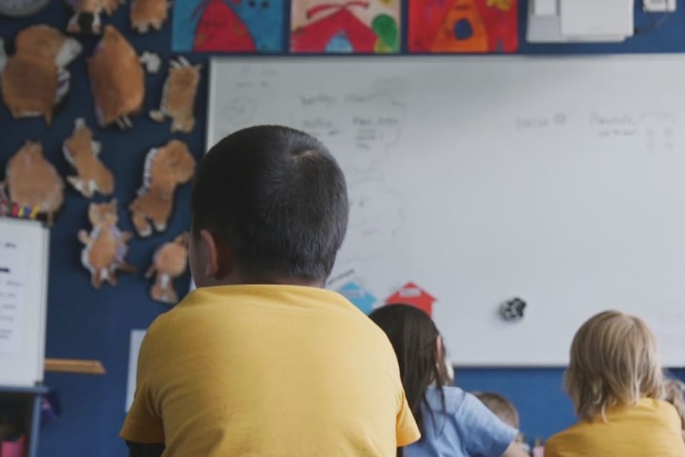A school attendance officer says anxiety about Covid-19, lack of food, and language barriers are contributing to poor attendance by some children.
The government announced on Tuesday schools had hired 84 attendance officers to help get more children to class every day.
It provided funding for the officers as part of a $74-million plan announced earlier this year in response to regular attendance, defined as going to more than 90 per cent of classes, dropping to just 40 per cent in term two last year.
Announcing the milestone at Rangikura School in Porirua, Education Minister Jan Tinetti says regular attendance was improving and reached 60 per cent in term one this year.
Tinetti says the term two figures were not yet ready, but she was confident they would be better than last year's all-time low.

Jan Tinetti. Photo: Samuel Rillstone/RNZ.
"Term two's always been traditionally our term where winter illnesses hit, it's a bit of a tougher term, but I would expect that compared to term two last year that we would see an upward trajectory," she says.
Tinetti says she was also confident schools were on track to meet the government's target of regular attendance reaching 70 per cent next year.
"Schools are really positive about getting their young people back to school. The kids seem really set on the fact that they want to be in school," she says.
Tinetti says 762 schools had also used "regional response" funding to run their own schemes encouraging families to send children to class every day.

Rangikura School principal Eddie Uluilelata, pictured with students, says the school was fighting to get back to its pre-Covid attendance rates. Photo: John Gerritsen/RNZ.
Rangikura School principal Eddie Uluilelata says attendance dropped badly after the pandemic began.
"It was a rough time," he says.
"We dropped down to quite low per centages, 60, 70 probably even lower in some year levels."
Uluilelata says the school was fighting to get back to its pre-Covid attendance rates which were in the high 80 and 90 per cents.
He says consistently following up with the families of absent children and having an attendance officer were helping to improve attendance.
The school also shared weekly attendance rates with pupils, making it something of a competition, he says.
"We hear our kids talking like that to their parents, about the importance of coming to school, because they want to ensure that they are supporting the year level attendance levels," he says.
The attendance officer for the school's Kāhui Ako, or cooperating group of local schools, Lisa Fanueli, says a range of factors was driving poor attendance.
"It could be anxiety within the home. Some families I've dealt with the fear is coming from the parents, with Covid spreading again. The other barriers are food and it could even be the language barrier," she says.
Fanueli says rising costs were also harming attendance.

North Porirua Kāhui Ako attendance kaiāwhina Lisa Fanueli says the most important factor in improving attendance was building a rapport with families. Photo: John Gerritsen/RNZ.
She says the most important factor in improving attendance was building a rapport with families.
"Just being an ear, allowing them to offload to me. Then I go off and have a chat to my team and we work with them, alongside the families," she says.
Fanueli says she had been in the job since 2022, pre-dating the government's attendance officer initiative.
In Northland, school attendance rates were hovering about 48 per cent in term one.
But Tai Tokerau Principals' Association president and Hora Hora Primary School principal Pat Newman says the changes were starting to work.
He told Checkpoint his school was "heading close to north of 85 to 90 per cent most weeks".
"The biggest driver without any doubt is that we're raising community expectations. There's also about encouraging kids to want to come to school because they're missing out - that it's fun, that they're learning, that they're safe.
"Safety comes into it in a huge way. Lots of kids particularly worry about the cyber bullying stuff ... catching diseases now because of the Covid stuff, but it's about community awareness."
Newman says it was about getting family, neighbours and relatives involved in ensuring children attended school.
"Some of us are advertising on what's called Google TV, which is in the fish and chip shops and all the other shops around about getting back to school ... saying, 'hey, it doesn't cost to get back to school, get free lunch'."



0 comments
Leave a Comment
You must be logged in to make a comment.